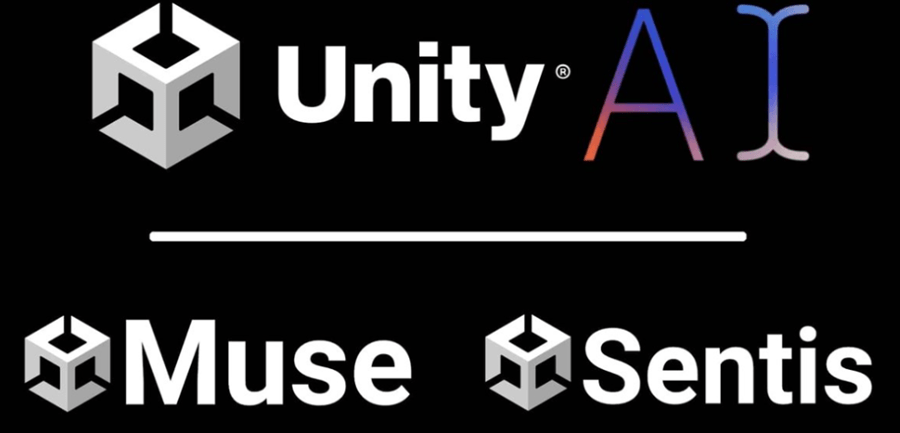Home >Technology peripherals >AI >Chen Gen: AI tools help game software with real-time 3D content
Chen Gen: AI tools help game software with real-time 3D content
- WBOYWBOYWBOYWBOYWBOYWBOYWBOYWBOYWBOYWBOYWBOYWBOYWBforward
- 2023-07-04 17:05:47829browse
文/Chen Gen
When AI joins forces with 3D, what kind of experience will it bring to game software vendors? Recently, the real-time 3D interactive content creation and operation platform Unity launched two AI tools, namely the Unity Muse creation platform and the Unity Sentis engine, designed to help developers enhance real-time 3D (RT3D) content.
As early as last year's World Artificial Intelligence Conference, Unity had stated that it was simplifying the production process of characters, scenes and objects by integrating AI technology into the existing creative process. Unity's creation tools based on AI empowerment can reduce costs and increase efficiency, allowing created digital assets to achieve smoother interaction.

Among them, Unity Muse is specially designed for creating immersive virtual reality and augmented reality. As an AI platform, it can help developers and artists create unique visual and audio effects, accelerate the creation of real-time 3D applications and experiences such as video games and digital twins, and create interactive scenes and interactive experiences. Currently, Muse supports as many virtual and augmented reality devices as possible and is designed to help developers in entertainment, education, marketing and other fields create unique virtual reality and augmented reality applications.
It is worth mentioning that the Muse platform also has an important function, Muse Chat. Leveraging the AI attributes of this feature, users can search within Unity’s documentation, training resources, and support content to obtain accurate and up-to-date information. This feature can help users find relevant information and even examples of working code to speed up development and solve problems.
Sentis is the first and only cross-platform solution to embed AI models into real-time 3D engines, enabling AI model inference in Unity projects. Developers can smoothly embed artificial intelligence models without worrying about high latency, which greatly simplifies the process of integrating AI into game projects and improves developers' experience. On a technical level, Sentis connects neural networks with Unity Runtime, unlocking more possibilities and helping to deploy artificial intelligence models in any Unity project.
"I think artificial intelligence will change games in several very profound ways. One of them is that it will make game production faster, cheaper, and better." Unity CEO John Riccitiello said in an interview, "This has already happened." According to reports, Unity's two AI tools are still in the internal testing stage and are planned to be launched globally later this year. In addition, Unity also announced that it will launch AI Hub, a dedicated AI marketplace in the Asset Store, providing creators with a variety of additional tools.
The above is the detailed content of Chen Gen: AI tools help game software with real-time 3D content. For more information, please follow other related articles on the PHP Chinese website!
Related articles
See more- Technology trends to watch in 2023
- How Artificial Intelligence is Bringing New Everyday Work to Data Center Teams
- Can artificial intelligence or automation solve the problem of low energy efficiency in buildings?
- OpenAI co-founder interviewed by Huang Renxun: GPT-4's reasoning capabilities have not yet reached expectations
- Microsoft's Bing surpasses Google in search traffic thanks to OpenAI technology

